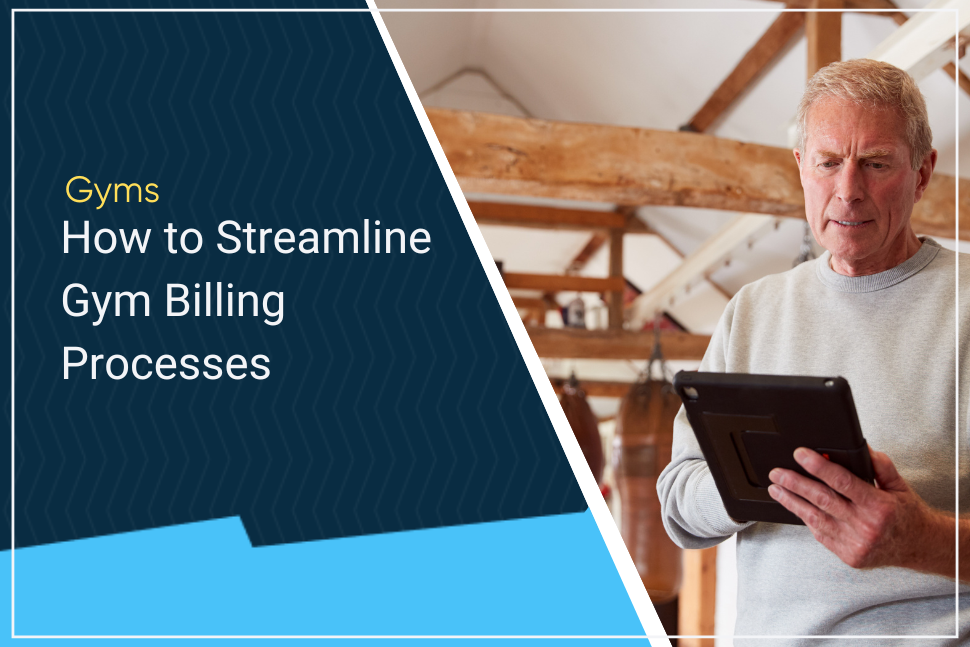
A nutritious diet and exercise routine go hand in hand for anyone looking to improve their health. Oftentimes, the exercise part is easy. Spending an hour at the gym doesn’t seem nearly as daunting as planning healthy meals for the week and skipping delicious desserts. Anyone in the fitness industry knows that you “can’t out-exercise a bad diet.” This is why you should consider incorporating a gym nutrition program.
Why Your Gym Needs a Nutrition Program
Many experts claim that losing weight and maintaining a healthy lifestyle consists of 80% nutrition and 20% exercise. This is why cliches like “abs are made in the kitchen” exist. Your clients will feel better during workouts and see quicker improvements in body composition when they are eating a healthy diet. When there is diet and nutrition information coming at them from every direction, it can be helpful to quiet the noise and just take advice from one person they trust - you.
A nutrition program doesn’t just benefit your members and clients. Nutrition coaching and accountability is an additional revenue stream for your gym. It can also bring in potential members who are just looking for help with their diet but later decide they want to include exercise as well.
Nutrition Education
First and foremost, you (or someone you hire to run the program) need to have the proper education to safely and effectively advise on nutrition and diet. While many fitness professionals pick up healthy habits and nutrition information throughout their careers, your fitness and nutrition program must be run by someone with an education and/or certification in nutrition.
Before you decide to pursue a nutrition certification yourself, you first need to look up your local requirements for giving nutrition advice. Some states only allow registered dieticians to prescribe meal plans and offer specific advice. If you are only planning on sharing general nutrition information and acting as an accountability partner, you may still be able to operate a nutrition program in a state that has stricter requirements.
Many personal training and fitness certifications include a brief section on nutrition. While this may cover you legally to offer nutrition coaching to your clients, it is often not enough education to run a truly impactful program.

Types of Nutrition Education
Registered Dietician
Registered dieticians (RDs) complete (at least) a bachelor’s degree in a related field, supervised clinical work, and an exam. These professionals have the highest levels of education and are well-qualified to offer nutrition and diet advice to your clients. Many gym owners are not registered dieticians, but you can hire one to oversee or create your nutrition program.
Nutrition Certification
There are hundreds of online and in-person nutrition certifications that you can complete. Many of these certifications focus on a holistic perspective on nutrition. These programs can vary from $100 online courses that only take a week to complete to $1000+ courses that take up to 18 months to complete and include exams and practicals. Use your best judgment to choose a reputable nutrition certification course.
Nutrition Coaching
Many nutrition programs have pivoted to include coaching information in their courses. Some of these courses even teach you how to open your nutrition coaching practice. Nutrition coaching certifications (like Working Against Gravity and Precision Nutrition) are excellent options for gym owners or employees to gain the appropriate knowledge to create and run a successful nutrition program.
How To Start a Nutrition Program at Your Gym
Once you have the appropriate education and certification to offer nutrition coaching at your gym, you’ll want to have everything set up before you begin offering services. By outlining your offerings and how you plan to run the nutrition program, you can avoid fixing any hiccups when you take on your first clients.
Develop Your Process
Your process is not just what your nutrition program offers but also how you plan to run it. For many gyms, this includes an onboarding consultation with the client, monthly or weekly check-ins, the “prescribed” diet or recommendations, communication of nutritional education, and more. Plan out all of these steps in as much detail as possible before you begin working with clients.
Each gym will offer different nutrition programs based on their clients’ needs and the education of the owner/coaches. Some things (but not everything) to consider when developing your program include:
- How are you checking in and communicating with your clients?
- Do you offer virtual coaching or in person?
- Are you offering meal plans, macronutrient ratios, general advice, etc?
- Are there different tiers based on the number of check-ins and advice provided?
- Will you be using gym software or another platform to track data and share information?
Nutrition Challenges
Running a nutrition challenge is a great way to kick off your nutrition coaching program. This gets members excited about the new offering. You can get a lot of members involved because they will all be competing and holding each other accountable. Offering challenges a couple of times a year can also bring in new clients.
There are several ways to host a nutrition challenge. Usually, there are specifications or recommendations for what kind of food to eat during a set period (typically 28 days or one month). While you will still onboard everyone into the challenge, this is less time-consuming than your coaching program because you will be giving everyone the same information throughout the challenge. Don’t forget to offer some great prizes for the winners!
Towards the end of your nutrition challenge, let all the participants know about your coaching program and how they can roll right into it. Nutrition is a long-term program that needs consistency to see the best results.
Staffing
Will you be taking on nutrition clients or will your coaches be running the program? Or, will you be hiring an outside nutrition coach for the program? This decision will depend on several factors, including if your coaches want to take on nutrition clients and if you have time to take on nutrition clients.
Additionally, you’ll need to determine the pay rate for whoever is doing the coaching. Will they be getting their usual hourly rate or will they receive a portion of the profits from the client’s membership?
Pricing
The pay rate for your nutrition coaches and the price of your program go hand in hand. Many gyms price their nutrition coaching based on their personal training rate since the program is considered one-on-one coaching. You can calculate the monthly rate by multiplying your personal training rates by the number of hours the nutrition coach will spend with (or talk with) a client.
Your program may also offer different tiers that come with different prices. This can vary based on the number of check-ins per month. It can also vary if you are offering general nutrition advice or creating a personalized meal plan and recommendations. By offering different tiers of service and prices, you can create a nutrition program that is inclusive of everyone's needs, wants, and price range.
Keep It Simple
If you have the education and certification to create specific meal plans or macronutrient ratios, by all means, go ahead. However, it doesn’t need to be that specific for your clients to see great results. So often, the smallest changes can make the biggest impact on someone's health.
By educating your clients and acting as an accountability partner, they can take their diet into their own hands and create long-lasting habits. Simply cutting out soda, getting enough protein, and eating more vegetables can be life-changing for someone currently eating the “standard American diet.”
Don’t underestimate how impactful accountability and support can be for someone looking to eat healthier. Sometimes your clients just need someone rooting for them and pointing them in the right direction.
Advertising
It is pointless to have an exceptional coaching program if no one knows about it. Your gym members will be the first people that you want to get involved in the program. If nutrition is regularly discussed at the gym, they will already know how important healthy eating is and will see the value in your coaching program.
Outside of the gym, you’ll want to make sure your nutrition program is prominently featured on your website and social media pages. Share free nutrition education and success stories. Make it easy to see what you offer and how potential clients can find out more information. Nutrition clients don’t need to be gym members (although a combination membership is the best option!).
Additional Tips
Practice Good Nutrition Yourself
As a gym owner or fitness coach, you are your best marketing tool. Members and potential clients are going to look to you for advice and inspiration. You don’t need to strictly eat chicken breast and salad every day, but your clients need to see you practicing what you preach.
Not only does it look good, but eating healthy also makes it easier for you to support and relate to your nutrition clients. You have a better perspective to offer recipes, guidance, and an understanding ear when they’re struggling with making healthy choices.
Include Nutrition From the Start
Since exercise and nutrition go hand in hand, you should include nutrition at your gym from the start. When you meet with potential members, ask them about their diet and let them know about your nutrition program. Include nutrition posts on your social media and make sure coaches are discussing healthy eating habits at the gym.
Final Thoughts
Once you have the appropriate education and certification, it can be quick and simple to start a nutrition program at your gym. You’ll just need to decide the structure of your program and what kind of advice and support you will be offering. Set your prices and determine who will run the program. Offering a nutrition program turns your gym from a place of exercise to a facility supporting overall health. Your members will love the progress they see in the gym, how much quicker they see changes in body composition, and how much better they feel overall. There is nothing to lose and everything to gain.
Gym management software that frees up your time and helps you grow.
Simplified billing, enrollment, student management, and marketing features that help you grow your gym or martial arts school.





